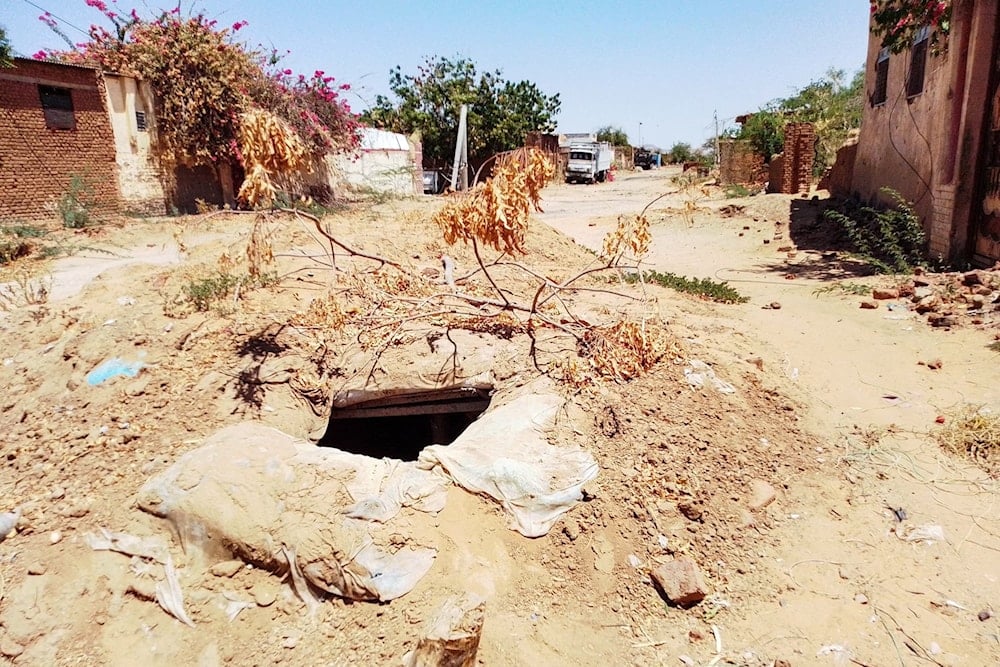Famine and shelling trap civilians in El Fasher conflict: Reuters
Civilians in El Fasher are hiding in underground shelters as the conflict intensifies, while the city faces famine, repeated shelling, and widespread displacement.
-

A makeshift bunker dug in El Fasher as a hideout from clashes between the paramilitary RSF and the Sudanese army and allied militias. (AP)
Besieged residents of El Fasher, Sudan, have resorted to hiding in underground shelters in an attempt to protect themselves from drones and shelling, after a reported intensification of attacks on displaced persons' shelters, clinics, and mosques.
El Fasher, which is now experiencing famine, is the Sudanese army's last stronghold in the western Darfur region, where it is engaged in fierce battles against the Rapid Support Forces.
More than ten residents contacted by phone, as well as footage obtained by Reuters, reveal a city taking desperate measures for survival, where those who remain have dug underground shelters for protection from the relentless strikes on civilians.
Their strategy for avoiding drones involves severely limiting movement and avoiding any large gatherings during daylight hours, while after dark, they enforce a complete blackout, refusing to use any lights that might draw attention.
North Darfur State's Health Minister, Khadija Mousa, told Reuters by phone from El Fasher, "They do not distinguish between civilians and soldiers. If you are a human being, they will shoot you."
The Rapid Support Forces and their allies have been accused of waves of ethnic violence in Darfur throughout the conflict, and the United States concluded that they had committed genocide last year.
Repeated attacks
The "Al-Arqam" center, which is located within the university compound and includes a mosque, has been subjected to repeated shelling, and the center's director, Hashem Bush, has recorded 57 fatalities, including 17 children, three of whom were infants.
In a voice message to Reuters describing the first raid, he said, "They were targeting the mosque; they attacked right after Friday prayers," adding that a second raid was carried out by a drone that tracked people as they ran to another shipping container being used as a shelter.
The following morning, four more shells fell during dawn prayers, according to Bush, and residents confirmed the attacks in videos captured by local activists and verified by Reuters.
According to a Sudanese human rights organization, the Rapid Support Forces began deploying earthen barriers on October 4th to almost completely encircle El Fasher, and as a result, activists warned last week that even the animal feed people have resorted to eating is no longer available, adding that an average of 30 people are now dying each day from violence, hunger, and disease.
A significant number of corpses have been left scattered in the streets, creating a serious public health hazard, according to the Abu Shouk Emergency Response Operations Room, which is a network of volunteers.

 3 Min Read
3 Min Read









